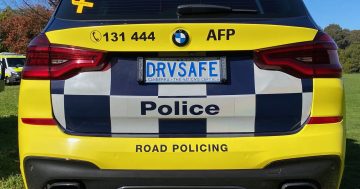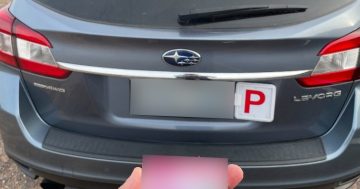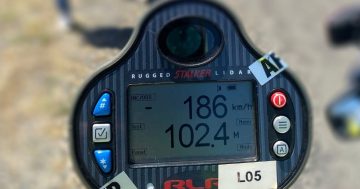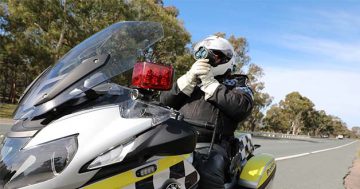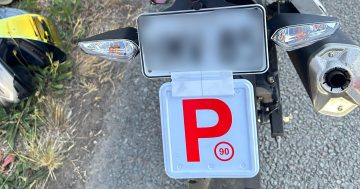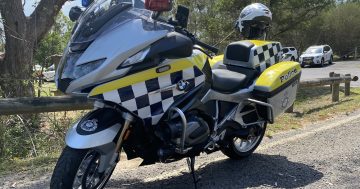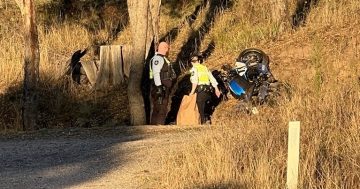
ACT Police were dismayed by the actions of some drivers over the long weekend. Photo: ACT Policing.
A lead-footed 32-year-old P-plater proved himself a slow learner over the Anzac Day long weekend when he was clocked at 150 km/h in a 60 km/h zone at Kaleen.
The driver had only regained his licence in March, having served a six-month disqualification for drink-driving, but was caught by police doing 90km/h over the limit.
His offence was among the worst detected over the double demerit period.
A spokesperson said ACT Policing was dismayed by the behaviour displayed by some drivers, with several set to lose their licences for speeding and drink driving offences.
Across the four days double demerits were in effect, ACT Policing detected eight drug drivers, two drink drivers and 50 drivers speeding, including 10 at more than 30 km/h over the speed limit.
One of the first high-range speeding drivers observed was a 17-year-old provisional licence holder driving at 136 km/h in a 100 km/h zone on the Majura Parkway on Saturday night (24 April).
Other drivers stopped by police included:
- A 19-year-old man on a provisional licence detected driving at 138 km/h in the 80 km/h zone on Adelaide Avenue at about 9:30 pm Monday (26 April), and
- A 29-year-old woman who registered a blood alcohol content of 0.228, more than four-and-a-half times the legal 0.05 limit. Police detected this driver after she was observed driving on Jim Pike Avenue, Gordon, with no headlights on at about 10:40 pm Sunday (25 April).
The speeding drivers will both be fined $1841 and will each accrue 12 demerit points, meaning both will lose their licences for a minimum three-month period.
The drink driver will face court by summons on 22 July.
ACT Road Policing Acting Sergeant Andrew McKellar said the generally good driver behaviour on the long weekend was undermined by a few drivers doing the wrong thing.
“While the Anzac Day long weekend was, for many, a period for quiet reflection of past sacrifices, for a few people, it was a chance to be selfish and put lives in danger on our roads,” Acting Sergeant McKellar said.
“It’s a handful of drivers, but these readings almost defy belief. There’s no way this behaviour can be accidental. It’s deliberate and could almost be described as wilfully dangerous.
“Most drivers, on their P-plates or otherwise, do the right thing, but if you know someone who speeds or chooses to drive while under the influence, speak to them about it. The life that conversation might save could be yours.”













